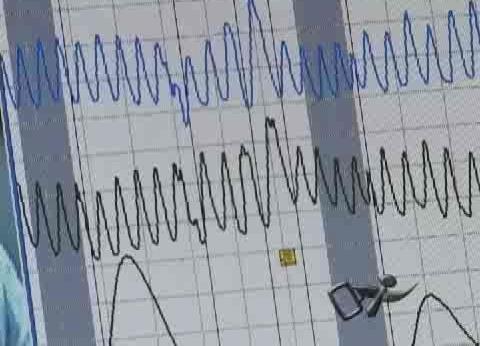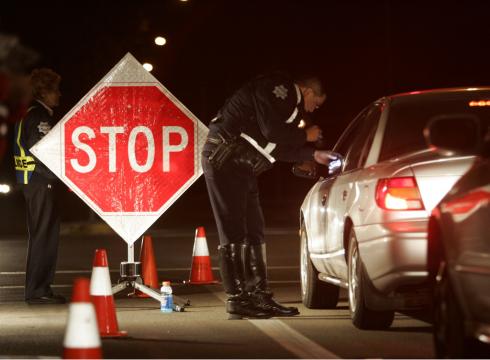The Smell of Marijuana and the Court of Appeals
Body camera footage is an invaluable resource for courts facing suppression motions, but it rarely serves as a stand-alone source of information about a warrantless search or seizure.
Here, the trial court was hamstrung in analyzing the validity of a warrantless search of defendant, Jeffery Scott Armstrong, and the subsequent seizure of a gun because the trial court was given no evidence other than body camera footage.
Despite that disadvantage, the trial court dutifully made findings of fact and ordered the suppression of the gun.
Because we conclude that the trial court’s findings of fact were not clearly erroneous and its conclusions of law were sound, we shall affirm the trial court’s suppression order.
Background
On October 8, 2020, law-enforcement officers conducting a home-compliance check in the city of Detroit came upon a Jeep Cherokee parked on the street.
They spoke to a woman who was in the driver’s seat and to Armstrong, who was sitting in the front passenger’s seat. What piqued the interest of the law-enforcement officers at first was the scent of marijuana emanating from the Jeep.
Body camera footage shows the officers approaching the vehicle, speaking with both people in the vehicle, instructing Armstrong to get out of the vehicle, and ultimately finding a gun under the front passenger’s seat.
As a result, Armstrong was charged with carrying a concealed weapon, MCL 750.227, being a felon in possession of a firearm (felon in possession), MCL 750.224f, and possession of a firearm during the commission of a felony (felony firearm), MCL 750.227b.
Aggressive Criminal Defense
Have you encountered legal issues related to DUI or lost your driving privileges in Michigan?
Call Our Office for a Free Case Evaluation
In response, Armstrong moved to suppress the gun as the fruit of a search that violated the Fourth Amendment to the United States Constitution.
In the trial court, both parties several times declined an invitation to hold an evidentiary hearing, stipulating instead to the use of body camera
footage as the evidentiary basis upon which the trial court should resolve Armstrong’s suppression motion.
Additionally, although no police reports concerning the search and seizure were filed in the trial court, the parties included quotes from the police reports in their briefs, so the trial court considered those excerpts from the police reports.
Relying upon that limited record, the trial court described the factual background of the suppression motion in the following terms:
On October 8, 2020, Corporal Eaton and Officers Genaw, Saad, Scott, and
Krzyak were driving down Seneca street in the city of Detroit to conduct a home compliance check.
Corporal Eaton observed a black Jeep Cherokee parked on Seneca street, with a woman in the driver’s seat and Armstrong in the front passenger seat.
According to Corporal Eaton, she smelled the scent of burnt marijuana as she drove past the black Jeep Cherokee. She parked her vehicle then walked behind the black Jeep Cherokee, exited, and approached the car.
The prosecution’s brief in support alleges that when Corporal Eaton asked Armstrong about the scent of marijuana, she observed a black handgun lying on the floorboard of the vehicle directly in front of Armstrong.
Prosecution also makes note that Corporal Eaton noticed Armstrong’s hand shaking when he was being questioned.
With the parties’ consent to rely on the body camera footage as evidence of the initial interaction between Corporal Eaton, the driver of the vehicle, and Armstrong,
the dialogue is detailed below:
Conclusion
In sum, based on the limited factual record to which the parties stipulated in the trial court, no finding of fact made by the trial court is clearly erroneous.
Therefore, we shall uphold the trial court’s finding of fact that “the firearm was not visible until Armstrong had already been removed
from the vehicle.”
Because the gun was not in plain view before defendant was unconstitutionally seized, the prosecution has provided no exception to the warrant requirement that justifies seizure of the gun.
Accordingly, the trial court properly granted defendant’s motion to suppress the gun, thereby making dismissal of the charges against defendant appropriate.
Read it all here
COA People vs Jeffery Armstrong-Smell of Weed-20221122_c360693_48_360693.opn
Or is it?
It is headed to the Michigan Supreme Court for Oral Arguments
MSC-People vs Jeffrey Armstrong 11-2023 165233_58_01 (PDF Order)
courts.michigan.gov/c/courts/coa/case/360693 (MSC Page)
More Posts

Polygraphs Proven Unreliable, Used for Police Intimidation
Polygraphs are widely recognized as unreliable yet police still use them to elicit confessions. By Michael Komorn Many states don’t allow polygraph test to be admitted in court because they are unreliable. Their lack of reliability is widely recognized by criminal...

Arrests for DUI’s on the Rise
By Michael Komorn Arrests for DUI’s have been on the rise across Michigan. This trend could drastically increase as The National Transportation Safety Board (NTSB) has called on state authorities to reduce the legal limit to 0.05 percent. Currently, all 50 U.S. states...

US District Court Judge rules police cannot enter a car without a warrant to facilitate a drug dog sniff
Federal Judge Applies GPS Ruling To Drug Dog Traffic Stop By Michael Komorn Last week, a judge with the US District Court for the Southern District of West Virginia applied the precedent to the common police practice of “permeation” where a police officer enters a...

Drug Checkpoints: Unconstitutional
By Michael Komorn The Supreme Court ruled in City of Indianapolis V. Edmund that drug check points are unconstitutional. So what happens when you see one on the highway? Keep calm and carry on. Police, especially in the Mid-west, have been using drug check points as a...

Knowing When to Exercise Your Rights
Remember, even if you are doing nothing wrong, there are a number of different outcomes that can occur from a police encounter. The short list includes: 1) No action, no problems; 2) A warning or citation; 3) An arrest and/or criminal charges. Exercising your rights...

Why Police Lie Under Oath
Thousands of people plead guilty to crimes every year in the United States because they know that the odds of a jury’s believing their word over a police officer’s are slim to none. As a juror, whom are you likely to believe: the alleged criminal in an orange jumpsuit...

What Did I Just Get Charged With?
Below is a list of common drug offenses as defined by the State of Michigan. If it is your second offense, it is important you read statute 333.7413 below. 333.7413 Conviction of second or subsequent violation; penalty....








